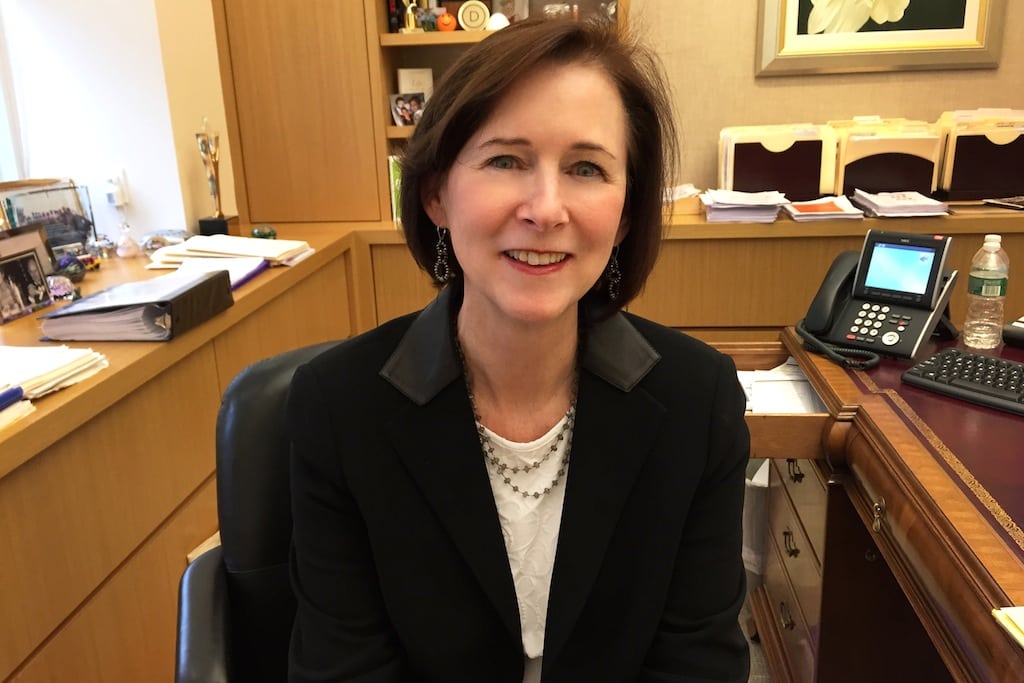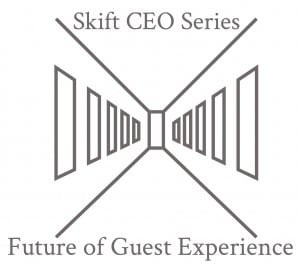Skift Take
Designing the guest experience today requires thinking through the entire travel process, which includes providing guests with jealousy-inducing stories to share upon their return.
Editor’s Note: This interview is part of Skift’s CEO interview series. This series is with hospitality CEOs talking about the Future of the Guest Experience and the evolving expectations and demands of hotel guests. Check out all the interviews as they come out here. Also, enjoy the previous series on the Future of Travel Booking, with online travel CEOs.
Denihan Hospitality Group is a 50-year-old family-run company behind luxury and lifestyle properties branded under The James and Affinia Hotel Collection as well as luxury independents The Surrey and The Benjamin and affiliates including The Franklin, The Mansfield and Shoreham in New York City.
The venerable brands names are as well known by locals and travelers for their rooftop bars, spas and restaurant options. Brooke Barrett grew up in hospitality brand built by her family and today leads the organization as co-CEO with her brother Patrick Denihan.
We recently spoke with Barrett about hotels’ role as entry points to the local neighborhood, giving guests a story to tell after their stay, and striking a balance between technology and guest interaction.
Skift: What are the biggest challenges that you’re facing to improve the guest experience today?
Brooke Barrett: There are certainly a lot of challenges. One of the biggest is just coping with how quickly business is changing and really how quickly customers’ needs and wants are changing. The biggest shift that we’ve seen among people who stay with us is that everybody wants a unique travel experience that they can call their own. The challenge is staying up with that and being able to anticipate or be one step ahead of what the guest is looking for before they are looking for it.
A lot of it is related to local, being more familiar with the community or neighborhood around the hotel. Art is a big factor in our hotels and people have taken a bigger interest in that. In our James hotels, we have cards that guests can scan with their iPhone to get a sense of the artist and the reason that the painting is the hotel. It’s a way that guests can go back and tell their friends about a very different experience they had while in town doing business or going to the theater.
Skift: What are some of the changes or the shifts that you’ve seen in guest expectations?
Barrett: Guests want what they want when they want it now. I don’t know how else to say it, and so much of that is tied into technology. People want a great experience on the website. They want to easy bookings and an easy way to find out about the neighborhood while they’re in the hotel. They don’t want to wait on a line to check in or to ask the concierge a question. People want what they want in a very easy, simple and connected way.
Skift: What role does technology play in improving the guest experience in Denihan’s hotels? Do guests at luxury properties want more or less technology?
Barrett: We have new mobile apps that we have at the James Hotel and our Affinia Collection, which guests can download on their iPhone, iPad or any kind of Android device. They can not just check in or out of the hotel, while in the hotel, they can order room service right on the iPad instead of picking up the phone.
We also have push notifications so if a guest is at The James Royal Palm and walking by the restaurant, they can receive a push notification inviting them to come in and have a cocktail at a special discount. I think technology is actually helping hotels to do business and make money at the same time.
Skift: Do you prioritize back-end or consumer-facing technology? How do the two work together to improve the guest experience?
Barrett: It’s not one or the other; they need to work together. The consumer-facing website enables the guest to book online, ask questions, search, look at pictures, and ultimately make that buy decision. The back-end is all about making sure you have the technology that makes it easy for guests to navigate within the hotel, whether that’s an hand-held device to check in and not wait on a line or to post on social media about your stay. All of that has to be very much connected and in sync with one another.
Skift: How has hiring changed or evolved to match the guest experience?
Barrett: The most important thing we look for is people who want to serve people. People who feel passionate about hospitality and are genuine and truly believe that service is what they’re at the hotel for. I think you can train to the technology. All young people seem to have a good aptitude for technology and what they don’t know, as far as how to learn a system to check in a guest, comes pretty naturally. Hotels have always looked for people who like serving others so if there’s any evolution it’s that young people are more technologically driven.
Skift: In seeing how customers’ demands are changing, has the hotel supported more interaction between staff and guests? How does technology get in the way of guest experience?
Barrett: You’ve touched on one of my pet peeves. When I walk into a hotel and see someone looking at their computer versus the person checking in, it drives me nuts. That’s one of the downfalls of technology: You’re so focused on that screen that you’re not really focused on providing just a smile to say welcome to the hotel. We do a lot of training around the guest service and hospitality aspect, we reinforce that it’s really about the customer interaction and using technology to help you.
Skift: What are your views on this increase in hotel fees being levied against guests?
Barrett: It seems that fees, in instances like a resort fee, are a way of doing business. As far as fees for late check-outs or early check-ins, I think some hotels are testing the water about which would or would not stick. I think hotels are looking at airline change fees and seeing what models work for the hotel business.
For example, we just recently experienced a big slew of cancellations at one of our hotels for a certain week. We have been asking ourselves whether it would have helped or hindered us to have a fee for that. It’s something that we’re trying to figure out. I don’t think we know the answer. There’s so many other taxes being levied on the guests that you don’t want to come across as gouging the guest, but you have to look at your business model and make sure it is profitable.
Skift: A little bit shifting gears again is locals: Bringing locals into the hotels. You know, The James is a good example of a hotel that’s very well known and popular with locals maybe in New York or a certain set of locals, as it is with guests. How important is bringing locals into the hotel for either food or beverage or pool, rooftop to how you’re designing these hotels.
Barrett: It all speaks to guests wanting an experience. They want something that they can go home and remember the nice touch of local Brooklyn-made chocolate or a mini-bar with beer from the Hudson Valley at The James SoHo. People like those local things because it speaks to more the educated traveler who is in the know, finding these little things that maybe other people haven’t experienced.
Skift: Will catering to locals play a bigger part in the hotel’s business moving forward?
Barrett: I think so. People are drawn towards boutique independent hotels because they’re so individualized. The travelers today, in my opinion, are a lot more adventurous than they used to be. People love to explore and they want to explore what’s in that neighborhood of the hotel that they’re staying in.
Skift: What role has social media and content played in changing Denihan’s conversations with guests?
Barrett: You need people in the hotels constantly responding to comments. TripAdvisor is a very, very helpful tool, not only to people traveling, but to the hotels as well because it gives general managers the opportunity to actually talk with the guests. Hopefully, they spoke to guests while they’re in the hotel but afterwards is equally as important.
If you’re not proactive in managing your social media channels as a hotel then that can definitely affect your image and brand.
Have a confidential tip for Skift? Get in touch
Tags: ceo interviews, foge, luxury
Photo credit: Denihan CEO Brooke Denihan Barrett. Denihan Hospitality Group

